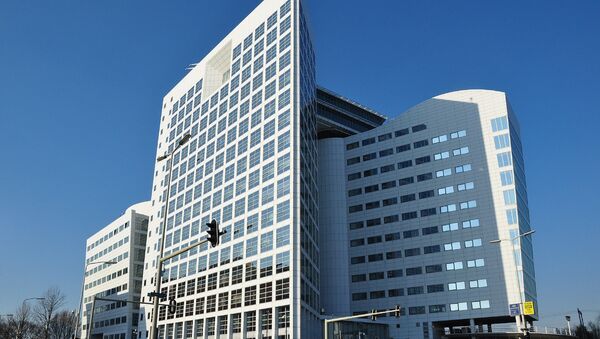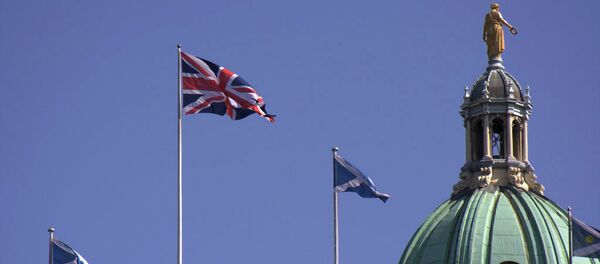NEW YORK, December 8 (Sputnik) – The international community must ensure that the International Criminal Court (ICC) has enough support in order to provide an effective justice for international crimes, several leading rights groups said Monday after the tribunal dropped an ethnic violence case against Kenya's president.
"The ICC is seen as the only hope for justice in more and more places… At the court's annual meeting, member countries should pledge more help for investigations, witness protection, and arrests so that the court can meet these expectations," Elizabeth Evenson, legal expert at Human Rights Watch, said in a Monday statement.
The Hague court is investigating cases in eight countries: Central African Republic, Côte d’Ivoire, the Darfur region of Sudan, Democratic Republic of Congo, Kenya, Libya, Mali, and northern Uganda. It has struggled with its existing caseload and calls to act in many other situations, according to Human Rights Watch.
In 2010, then Deputy Prime Minister Kenyatta was implicated by The Hague in organizing a political-religious group, the Mungiki, who were accused of violence against civilians following the bungled national elections of December 2007. The unrest led to a wave of ethnic bloodshed that pushed East Africa's biggest economy to the brink of civil war.
"It is a travesty that the government of Kenya has failed to ensure justice is done at the national level," Muthoni Wanyeki, regional director for Eastern Africa at Amnesty International, said Monday.
"Six years on, the victims are still crying for justice. The government of Kenya's lack of cooperation with the Office of the Prosecutor is deplorable and today's ruling will not deter us from supporting them in their pursuit of that goal," she added.
Some 1,200 people were killed and 660,000 more were forced to flee their homes before international mediators had struck a power-sharing deal in which Kibaki, the initial victor of the 2007 election, retained the presidency, while his main rival, Raila Odinga, became prime minister.





